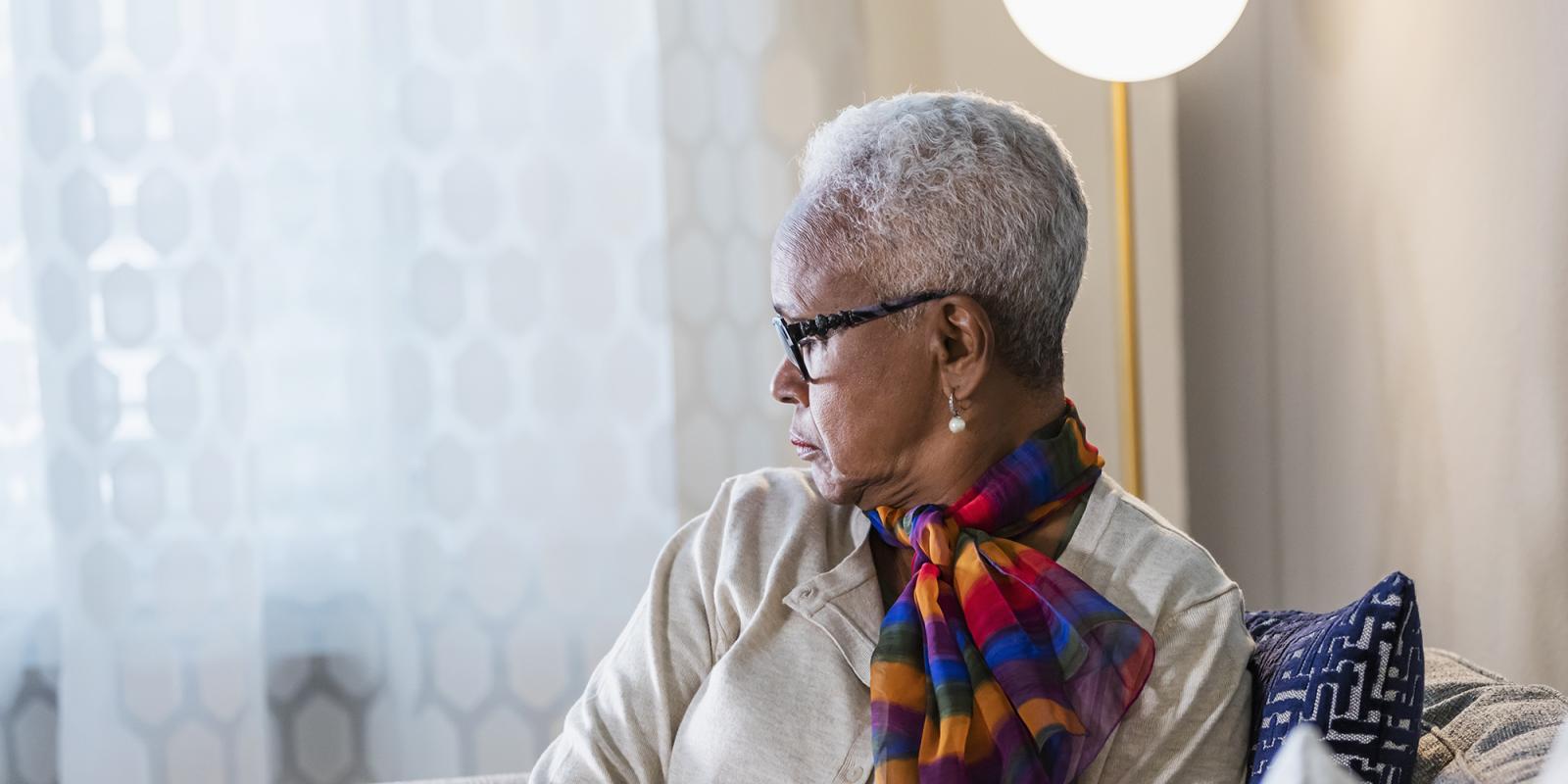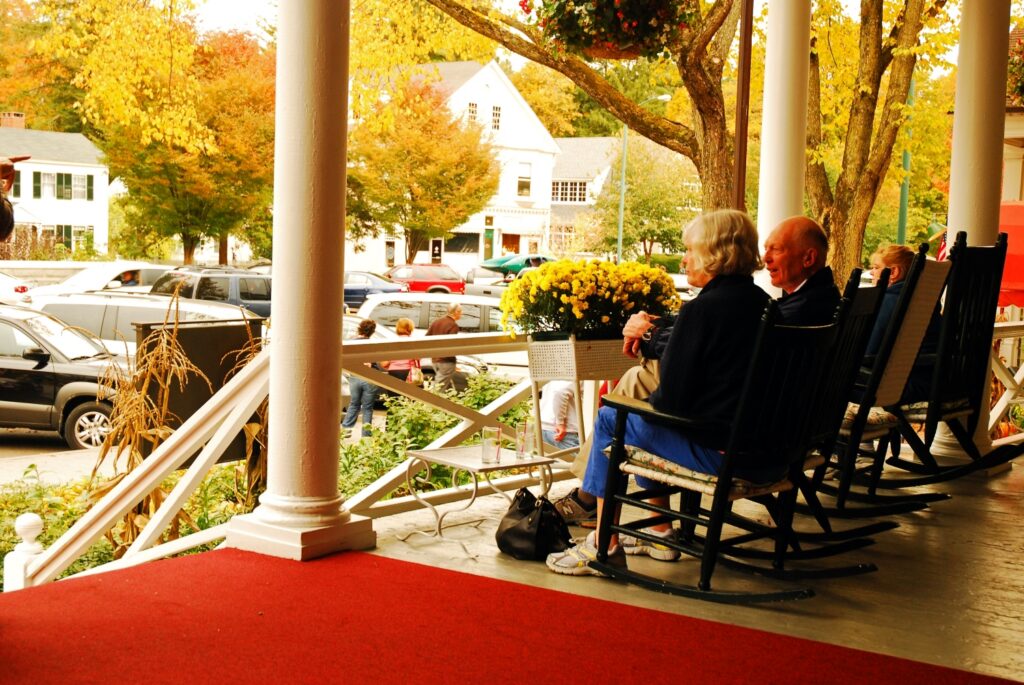This April we’re running a four-part series of blog posts from our sponsors at the Cambia Health Foundation, which highlights the work of their local community partners. In the following post, Dr. Karen Moss describes her highly innovative program, Pair 2 Care. Listen to it here.
Dr. Karen Moss is a registered nurse and nurse scientist who is an assistant professor of nursing and medicine at The Ohio State University. Dr. Moss’s research program is focused on improving pain and advance-care planning outcomes by improving palliative and end-of-life care for older adults living with dementia and their family caregivers. She examines multiple perspectives on factors that influence pain and end-of-life decision-making processes for Black/African American older adults living with dementia and their family caregivers.
This includes examining pain and stress in older adults living with dementia and their family caregivers. Dr. Moss and her team are actively refining and testing Pair 2 Care, a co-created peer-support program designed with and for Black/African American dementia family caregivers. Pair 2 Care is funded by Dr. Moss’s Sojourns Scholar Leadership Award from the Cambia Health Foundation. Through her work, Dr. Moss and her team are working diligently to improve the quality of life for Black/African family caregivers and their older adults who are living with dementia.
1. Who is Dr. Karen Moss?
Greetings! I am Dr. Karen Moss, a registered nurse and nurse scientist and an assistant professor of nursing and medicine at The Ohio State University. For most of my nursing career, I practiced in the adult critical care environment. I am the principal investigator for the Family Caregiving Community Research, or FamCare Laboratory. I am extremely honored to be a Cambia Health [Foundation] Sojourns Scholar, which supports my leadership development and my novel Pair 2 Care intervention.
2. What is the focus of your research?
My overarching research program is focused on improving pain and advance-care planning outcomes by improving palliative and end-of-life care for older adults living with dementia and their family caregivers. I examine multiple perspectives on factors that influence pain and end-of-life decision-making processes for Black/African American older adults living with dementia and their family caregivers. This includes examining pain and stress in older adults living with dementia and their family caregivers. From my initial research study, we sought to better determine meaning and understanding of advance care planning-related terminology. We learned, for example, that the term “end of life” can have a different meaning for our Black/African American older adults living with dementia and their family caregivers. For instance, healthcare providers often focus on before-death decision-making, such as whether or not to use CPR or be placed on a ventilator, which may differ from that of patients and families whose thought process might be more so focused on plans for the after-death period, such as funeral or burial preparation or life insurance.
Current and former family caregivers told us that they want to connect in a way that was flexible and nonjudgmental.
With this information we executed another descriptive study to determine the advance-care planning needs of Black/African American older adults living with dementia, including seeking their input on the design of a program or intervention to meet their specific needs. We included the perspectives of current and former family caregivers, healthcare providers and community leaders. Our former family caregivers are those whose loved one has died.
What we then learned was that the needs of our Black/African American dementia family caregivers are great. Current and former family caregivers told us that they want or wanted to be connected to someone who had personal dementia-care caregiving experience and understood them culturally. They wanted to connect in a way that was flexible and nonjudgmental. Our former family caregivers simultaneously expressed that they wanted to help those who are currently caregiving and they, too, wanted to continue to be involved in research that helps to support this effort.
So, from that study Pair 2 Care was born to deliver just that. Pair 2 Care is a peer support program for Black/African American dementia family caregivers where our former caregivers serve as mentors to those who are currently caregiving. So we are leveraging the expertise of former caregivers as experts of their experiences.
Pair 2 Care is 6-month, 100% virtual program where our mentors and mentees are asked to connect via video or voice call, text messages, or emails. For this study we remarkably enrolled, trained our mentors, and paired all participants in 10 weeks. All of our participants are 3 months or more into the study and we remain at 100% retention. So, we asked the individuals who we were seeking to help through this research, we listened, and we delivered to them a program that by all indicators thus far is meeting their unique needs in a culturally responsive, individualized way.
3. Why is this important?
So why is all of this important? Well, those of us who work in this space are likely well-versed on the high prevalence of dementia among Black/African American older adults. What this translates to is a village filled with family caregivers who remain unsupported through care navigation and access to resources, as well as face healthcare discrimination experienced personally, as well as with their loved ones. Therefore, anxiety, depression, stress goes up and overall well-being and quality of life goes down. And the cost, the vicious cycle of health impacts that affect their caregiving role and manifest as illness and disease that leads to disability and even death.
I dream of a day when a Black/African American dementia family caregiver who reveals to a healthcare provider that they are a family caregiver and they are enrolled in program like Pair 2 Care, where they, too, can truly feel supported and their mentors will be compensated for their expertise. Our ultimate goal is for Pair 2 Care to be scaled for use in all other racial and ethnic groups as well as other disease states. This is one of the many ways that we can help to reduce health disparities and promote equity.













